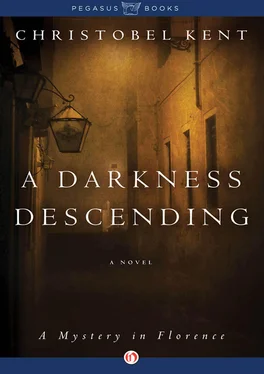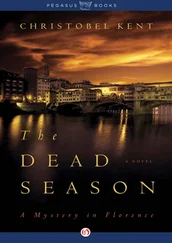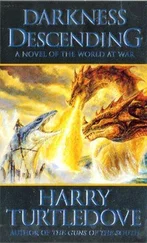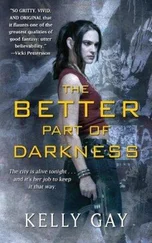Christobel Kent - A Darkness Descending
Здесь есть возможность читать онлайн «Christobel Kent - A Darkness Descending» весь текст электронной книги совершенно бесплатно (целиком полную версию без сокращений). В некоторых случаях можно слушать аудио, скачать через торрент в формате fb2 и присутствует краткое содержание. Год выпуска: 2013, ISBN: 2013, Издательство: Corvus, Жанр: Криминальный детектив, на английском языке. Описание произведения, (предисловие) а так же отзывы посетителей доступны на портале библиотеки ЛибКат.
- Название:A Darkness Descending
- Автор:
- Издательство:Corvus
- Жанр:
- Год:2013
- ISBN:9780857893260
- Рейтинг книги:5 / 5. Голосов: 1
-
Избранное:Добавить в избранное
- Отзывы:
-
Ваша оценка:
- 100
- 1
- 2
- 3
- 4
- 5
A Darkness Descending: краткое содержание, описание и аннотация
Предлагаем к чтению аннотацию, описание, краткое содержание или предисловие (зависит от того, что написал сам автор книги «A Darkness Descending»). Если вы не нашли необходимую информацию о книге — напишите в комментариях, мы постараемся отыскать её.
A Darkness Descending — читать онлайн бесплатно полную книгу (весь текст) целиком
Ниже представлен текст книги, разбитый по страницам. Система сохранения места последней прочитанной страницы, позволяет с удобством читать онлайн бесплатно книгу «A Darkness Descending», без необходимости каждый раз заново искать на чём Вы остановились. Поставьте закладку, и сможете в любой момент перейти на страницу, на которой закончили чтение.
Интервал:
Закладка:
Christobel Kent
A Darkness Descending
Prologue
She had to lean right down into the cot to set him down. It was a movement she had almost perfected over these first six weeks of his life: it might as well have been a decade, because now it seemed to her that the time before him had receded, impossibly out of reach.
The movement had to be slow and steady, then the arm had to be eased out from under that surprising weight that was his warm, damp head. The soft light glowed from the shelf above the cot: she straightened, set her hands on the rail and looked down. One small, plump arm in the white terry-cloth sleeve was raised and folded against his body like that of a little praying mantis; his cheek was just flushed from the feed, his mouth slightly open. His rosebud mouth with its milk blister: he was perfect. Born perfect, in spite of it all.
Next door she heard Niccolo shift in his chair, heard the rustle of the newspaper, and held her breath. She heard him cross his legs. She didn’t need to see, to know. They had been one soul, one unit, since they were nineteen years old. She knew what he was thinking. She didn’t move: she was waiting to be sure that the child was asleep, he knew that. She felt as though she would like to stay in here for ever, buried in the warm half-dark, postponing the moment.
It was not quiet: the Piazza Santo Spirito was almost never quiet, and September was a busy month. She could hear the restaurant sounds, the clink and clatter, the hum of conversation in different languages, a waitress bellowing into the kitchen. The midwife had reassured her, He’ll be used to it. They learn in the womb: these sounds are life to him, they’re his world, like your heartbeat. Some babies had Mozart played to them; her child would have the singing drunks of the Piazza Santo Spirito.
It was early still. The raucous sounds of the later evening had yet to begin. She liked to put him down by seven, although her mother-in-law found fault with her schedule, as with almost everything else. With the fact that they lived on the Piazza Santo Spirito, where drugs were dealt on the corner and there was always one alcoholic rough sleeper or another fighting, reeling under the statue or parked in a heap of rags and carrier bags against the fountain. The fact that they had never married, that they wouldn’t have the child baptized. Niccolo’s mother even found fault with her age. You make yourself ridiculous. Babies should come at nineteen, twenty. Her mother-in-law’s own age when she had had Niccolo, her only child, her treasure, which meant that she was a young grandmother. She could go on for years yet.
‘You put him down at seven, you can’t complain when he wakes you at three.’
She didn’t complain, though. If she had a complaint, she would not bring it to her mother-in-law. She stood on, still looking down: from next door a tiny exhalation of breath that meant, what are you doing in there still? Not that he would ever voice it. Niccolo did not seek confrontation, he took an age to rise to provocation, which was just as well, given the path he had chosen. Stern, just, certain: his face lifted before her, questioning, and lowered again to resume his examination of the newspaper. As if in confirmation, there was the sound of a page turning, carefully.
It came to her that the child didn’t need her, not really: milk came in bottles too, after all. She was not strictly necessary, not with the steady presence of Niccolo, his certainty, his resolution. His goodness.
In the kitchen the pots stood ready. She had made a sauce with aubergine and tomato. She need only turn and step back out of the warm, hushed gloom and light the flame, lay the table. Sit, push the food around the plate while Niccolo averted his eyes. She hadn’t eaten, it seemed, in months, but Niccolo said nothing.
Leaning down, gently, slowly, she pulled the white blanket over her son, to the chin. Up she came again, out of the cot, out of the child’s orbit, his sweet breath, his innocent, milky flesh, set her hands back on the rail to keep them still.
And it began: she was powerless to stop it. She tried to delay it, as if she might fool her own body; she stood very still, breathed as slow as she could. It’s in your head, she told herself, it’s your head that got you into this. Don’t do it, don’t look. Outside the night was cooling, the blessing of September after August, but a sweat broke on her upper lip. Don’t do it to yourself. She reached up to the shelf where the nightlight sat, felt along it with her hand, stopped, lifted it. Looked. No.
The sweat bathed her, from her brow to the backs of her knees. She felt the most sudden terrible urge to run to the window so quickly she wouldn’t be able to think and the momentum would propel her through, through the shutters, across the too-low sill and down three floors, twenty metres, she would fall, shocking in her house slippers and nightwear, between the restaurant tables. And there would be a silence. The silence was what she wanted: she wanted it all to stop.
Moving the hand along further, she reached for the baby monitor. She pressed the switch and its blinking green light came on. She turned for the door.
Niccolo’s face raised to hers, taking in the flush on her cheeks, the sweat on her neck, the dress sticking to her too-thin body, to the hips that had once been rounded, the breast that had been full. She felt a hundred years old under his gaze, a shrunken thing.
You make yourself ridiculous, at your age.
He could see the tremor in her hand as she pushed the door behind her because she saw it reflected in his face, but he said nothing.
‘He’s down,’ she said.
Chapter One
She came in past the journalist, a big man taking notes, handsome if you liked that kind of thing. Giuli didn’t. She’d seen him before; he smelled of cigarettes and good aftershave.
The meeting room was stuffy and crowded. Giuli — Giulietta Sarto, trainee private investigator, clinic receptionist and dogsbody, it sometimes seemed to her, to one and all — staggered a little as still more people jostled in. Among them she glimpsed a familiar face: Chiara, looking around for someone. They were already standing. The few chairs had been first ignored and then shoved aside.
On tiptoe Giuli strained to find Chiara again, to see if she was alone or if, like Giuli, she was with someone. Daughter of a policeman, fresh-faced, eager, nineteen years old: what was she doing here? Just the kind of new recruit they needed, actually. But she didn’t reappear. Perhaps, Guili thought, I was mistaken.
A window would have been a blessing; the evening air had been soft and just warm as she and her boyfriend Enzo had walked here, hand in hand. Instead, the overhead strip lighting and absence of any natural light were combining to give Giuli a headache. She didn’t suffer from claustrophobia, and she was resolutely disinclined to panic in any given situation, which was one reason why Sandro — Sandro Cellini, policeman turned private investigator and, as it happened, old friend and former colleague in the force of Chiara’s father Pietro — had decided to trust her with more work. Yet as the crowd once again shifted her on her feet, Giuli felt her gut tighten all the same and she groped for Enzo at her side. Looked for emergency exit signs, of which there were none.
Enzo took her hand firmly in his and she turned her head towards him. His broad, homely face framed by the old-fashioned haircut looked back at her, absolutely reassuring.
‘Not your idea of a romantic evening?’ He ducked his head shyly under her gaze, looking at her sideways. She squeezed his hand.
It was not an attractive venue, but then the Frazione Verde — its membership an eclectic, impoverished assortment of intellectuals, ex-communists, fervent greens, peaceniks and all the considerable variety of those, like Enzo and Guili, disillusioned with mainstream politics — couldn’t afford anything better. Access was via a passage that, if the smell was anything to go by, was used as a latrine by the local rough sleepers and ran behind a deconsecrated church on the Via Sant’Agostino, a hundred metres from the Piazza Santo Spirito. Constructed as a makeshift dispensary for charity following the war, it was crammed between two other buildings; it might have been above ground, but being inside the place felt like being buried.
Читать дальшеИнтервал:
Закладка:
Похожие книги на «A Darkness Descending»
Представляем Вашему вниманию похожие книги на «A Darkness Descending» списком для выбора. Мы отобрали схожую по названию и смыслу литературу в надежде предоставить читателям больше вариантов отыскать новые, интересные, ещё непрочитанные произведения.
Обсуждение, отзывы о книге «A Darkness Descending» и просто собственные мнения читателей. Оставьте ваши комментарии, напишите, что Вы думаете о произведении, его смысле или главных героях. Укажите что конкретно понравилось, а что нет, и почему Вы так считаете.












